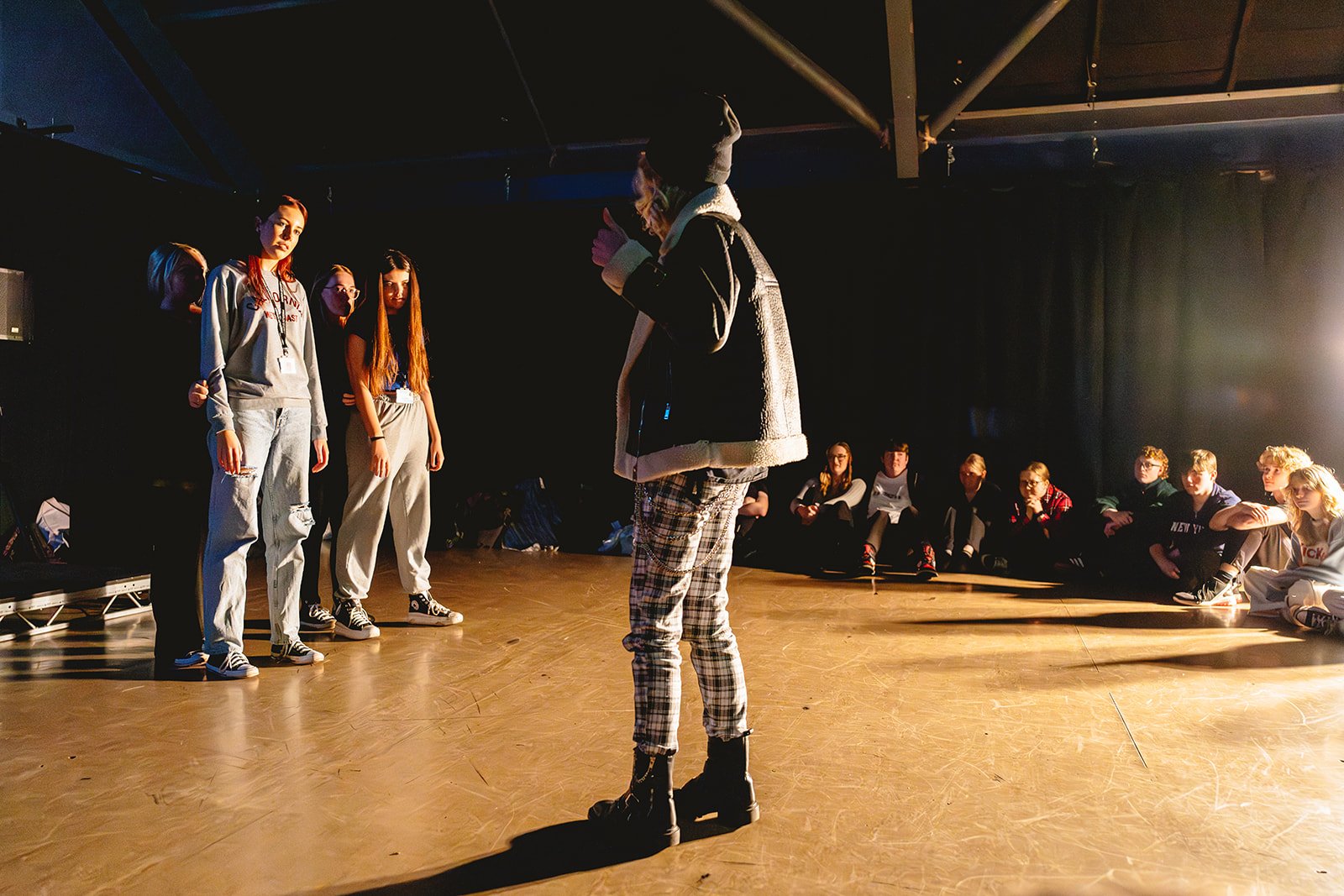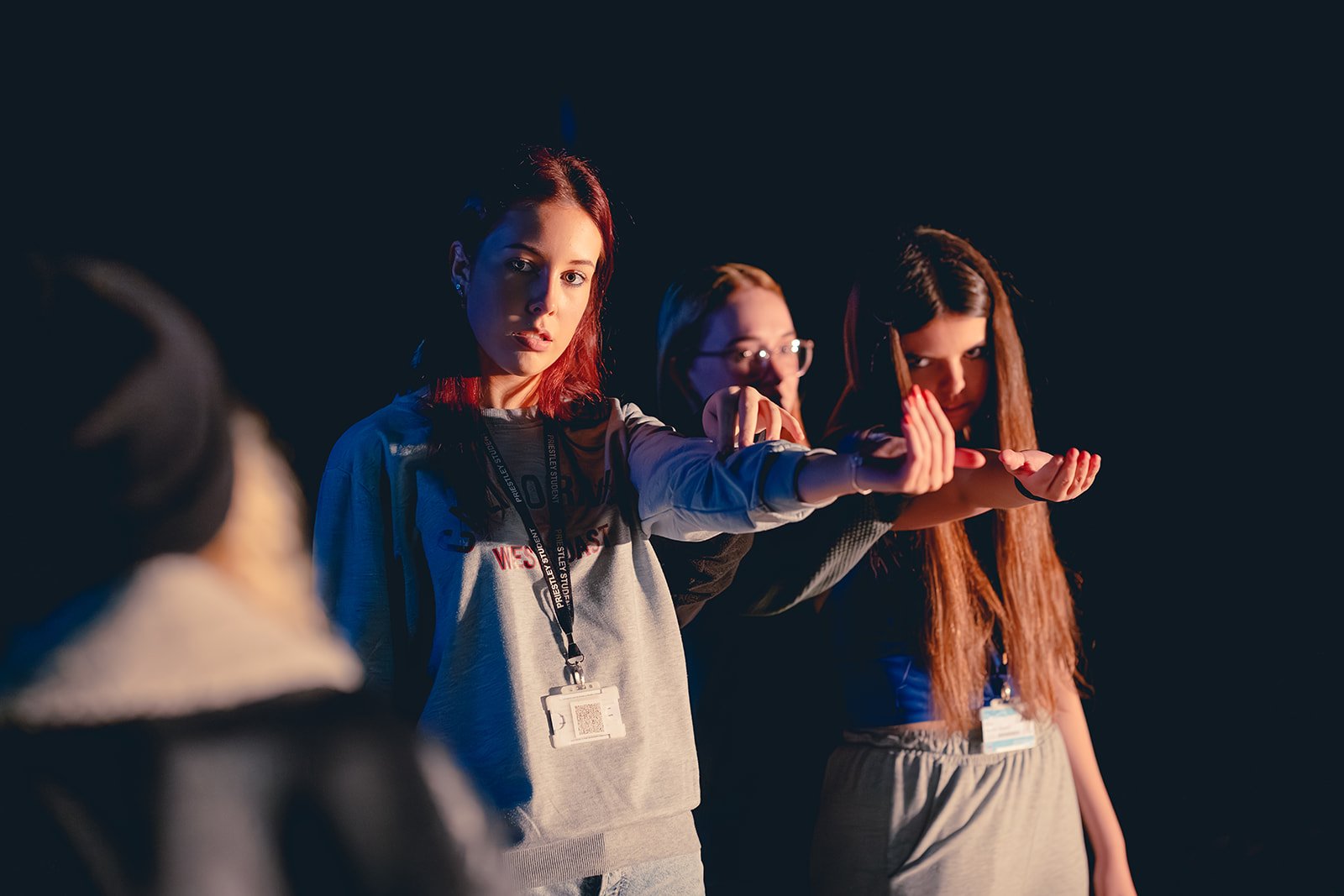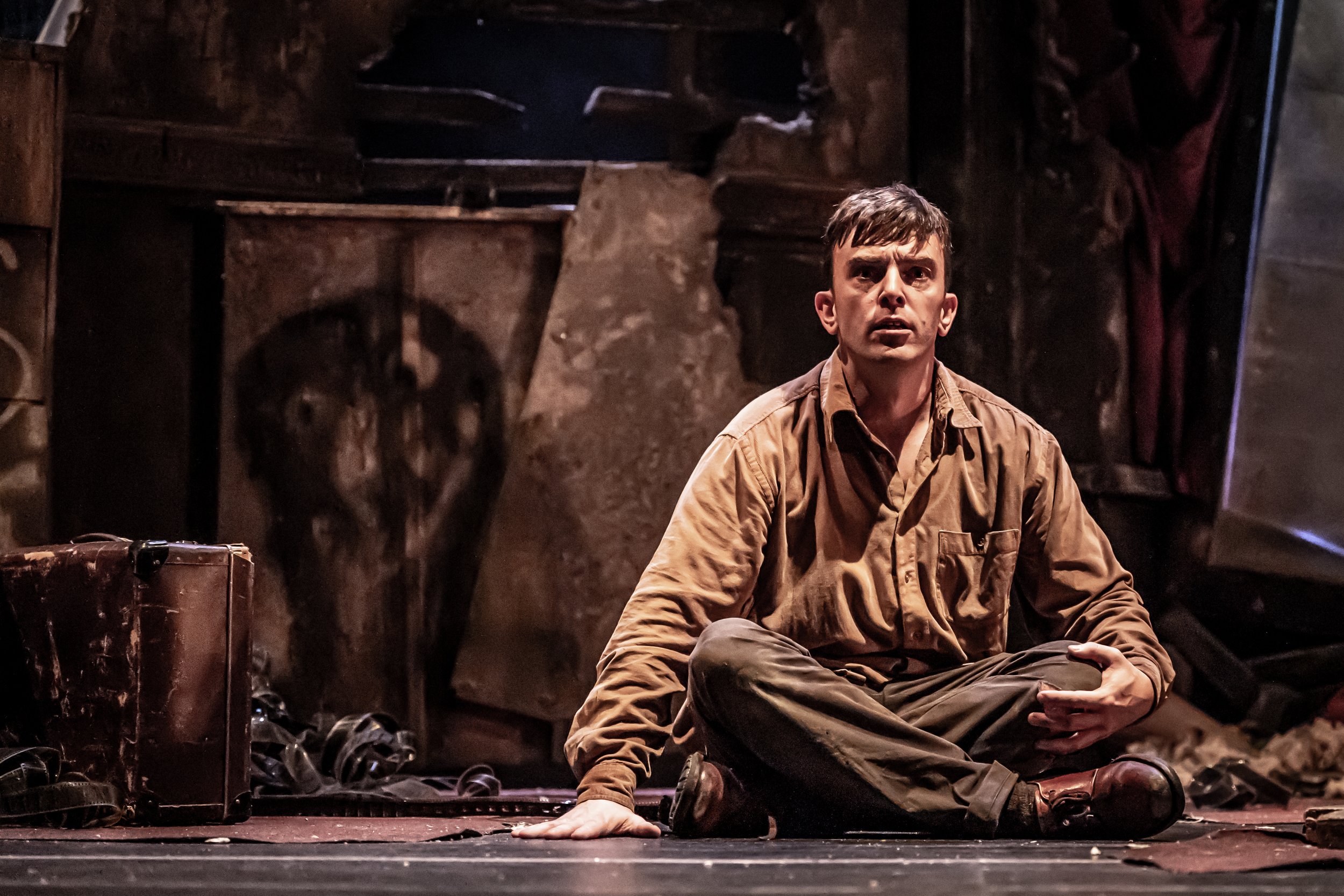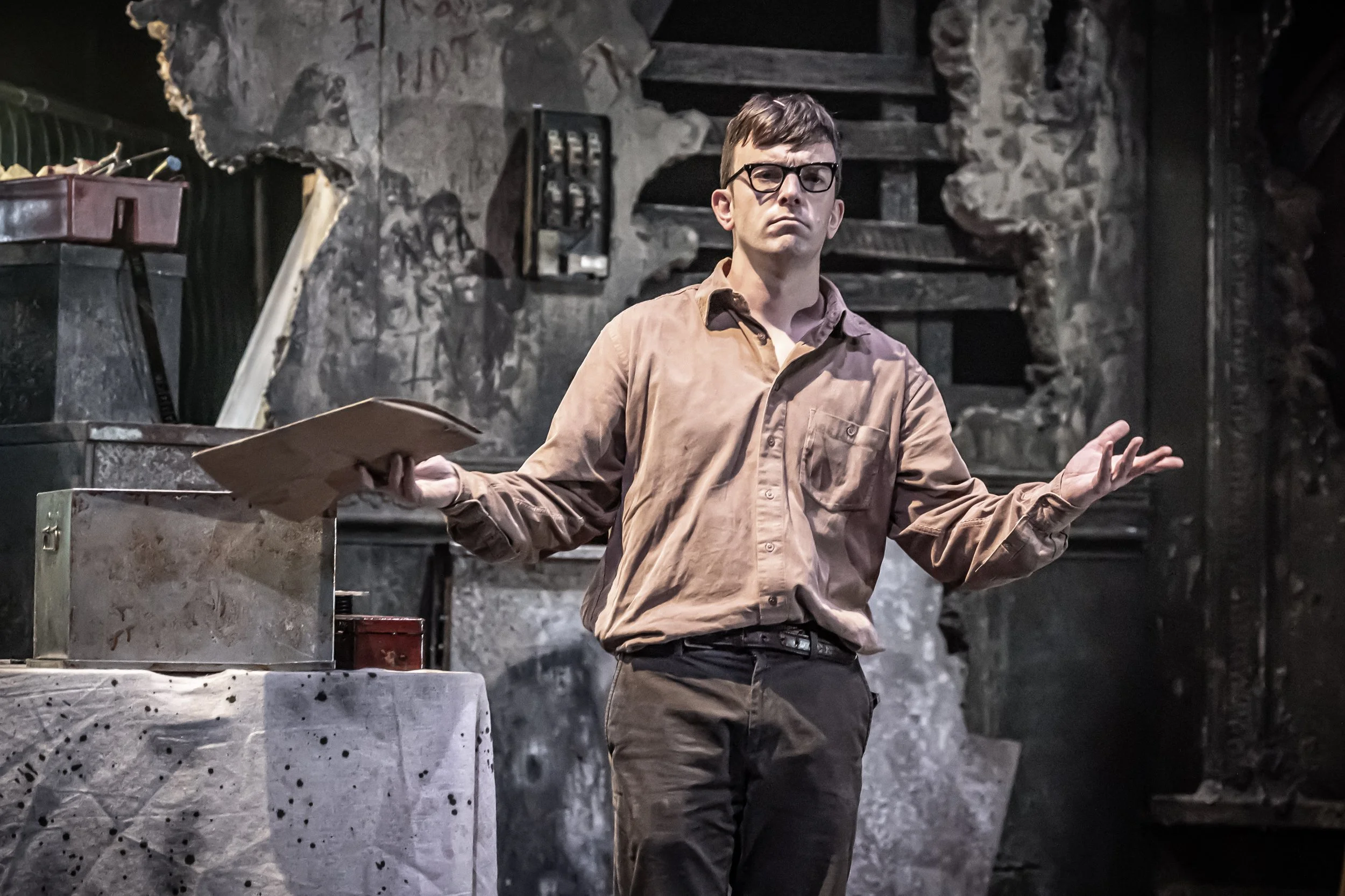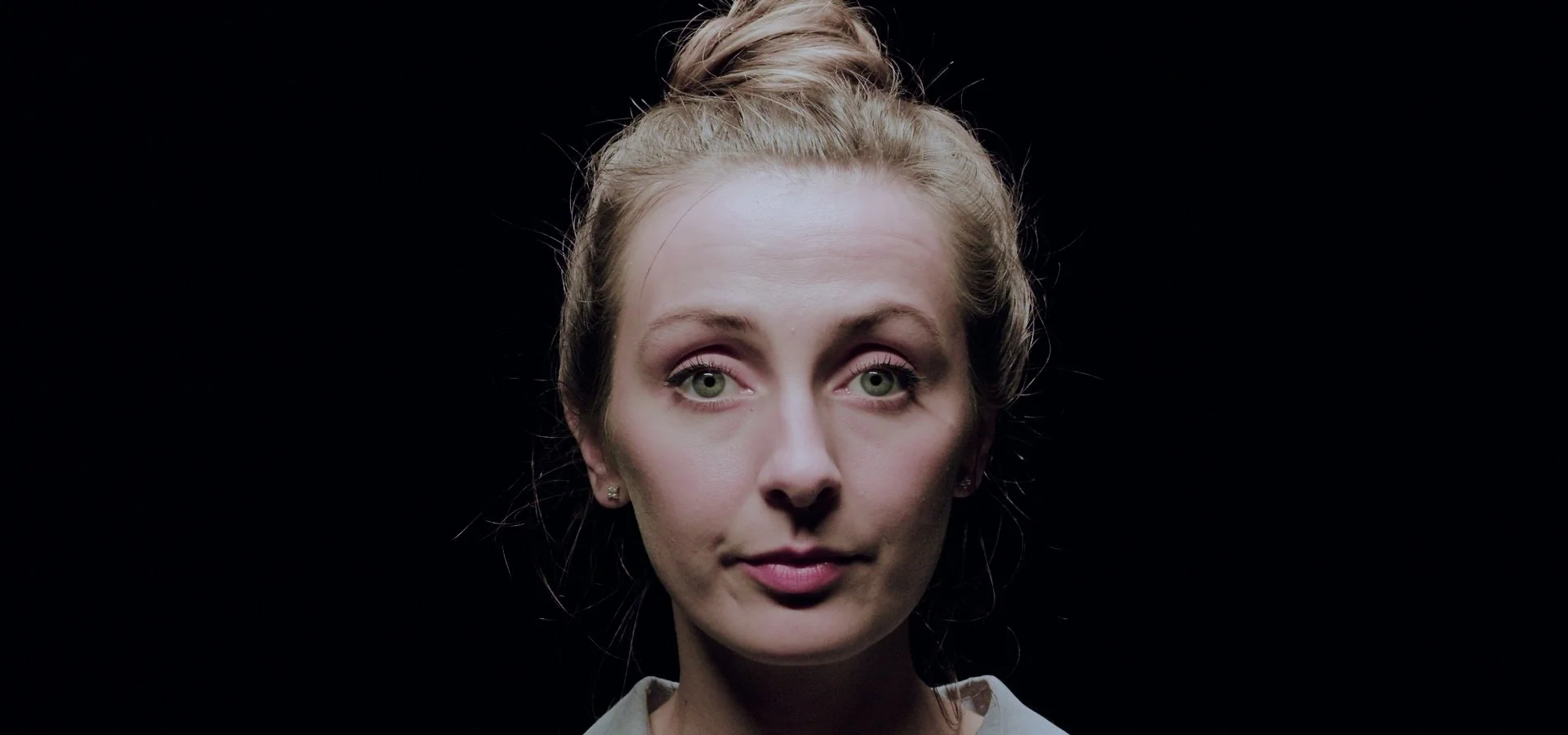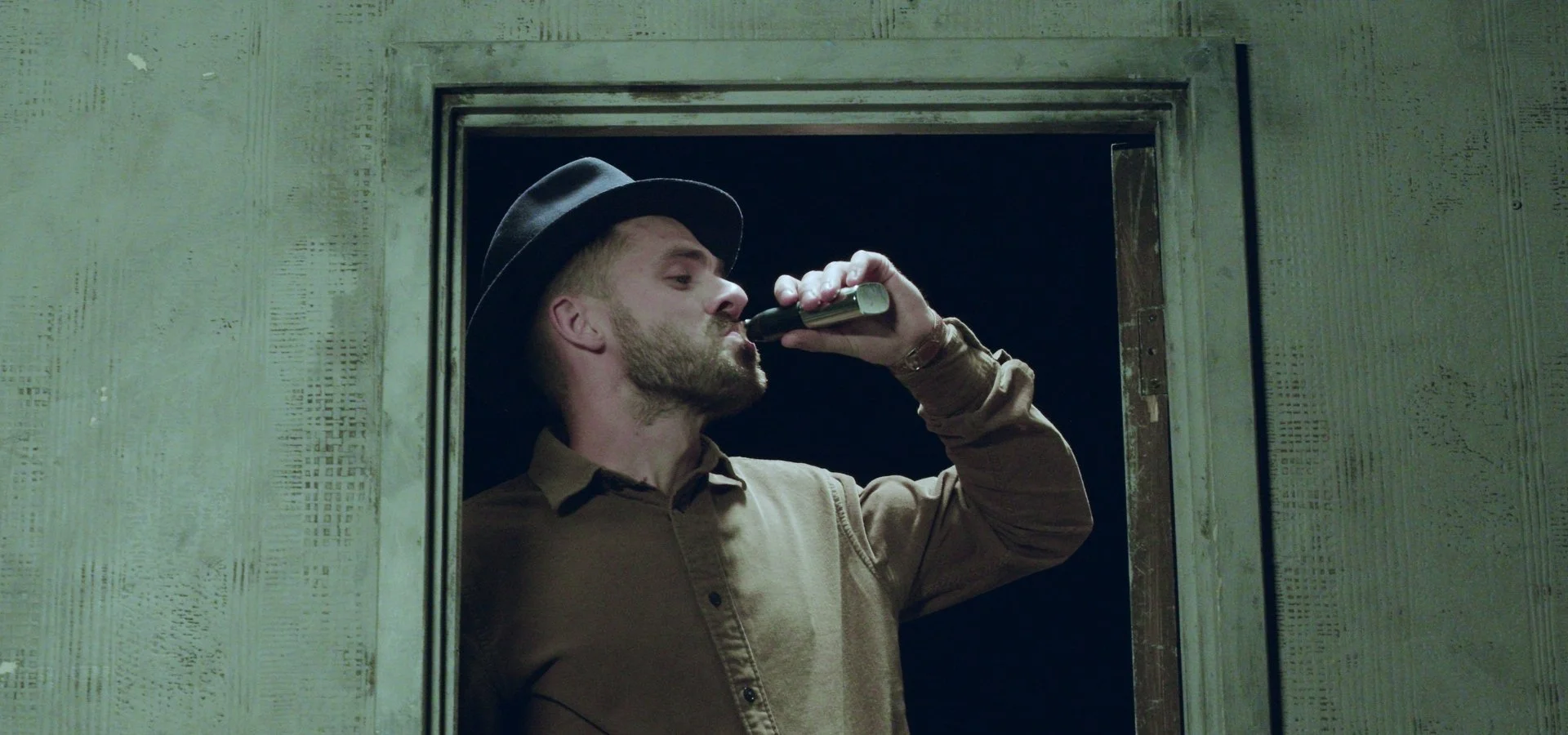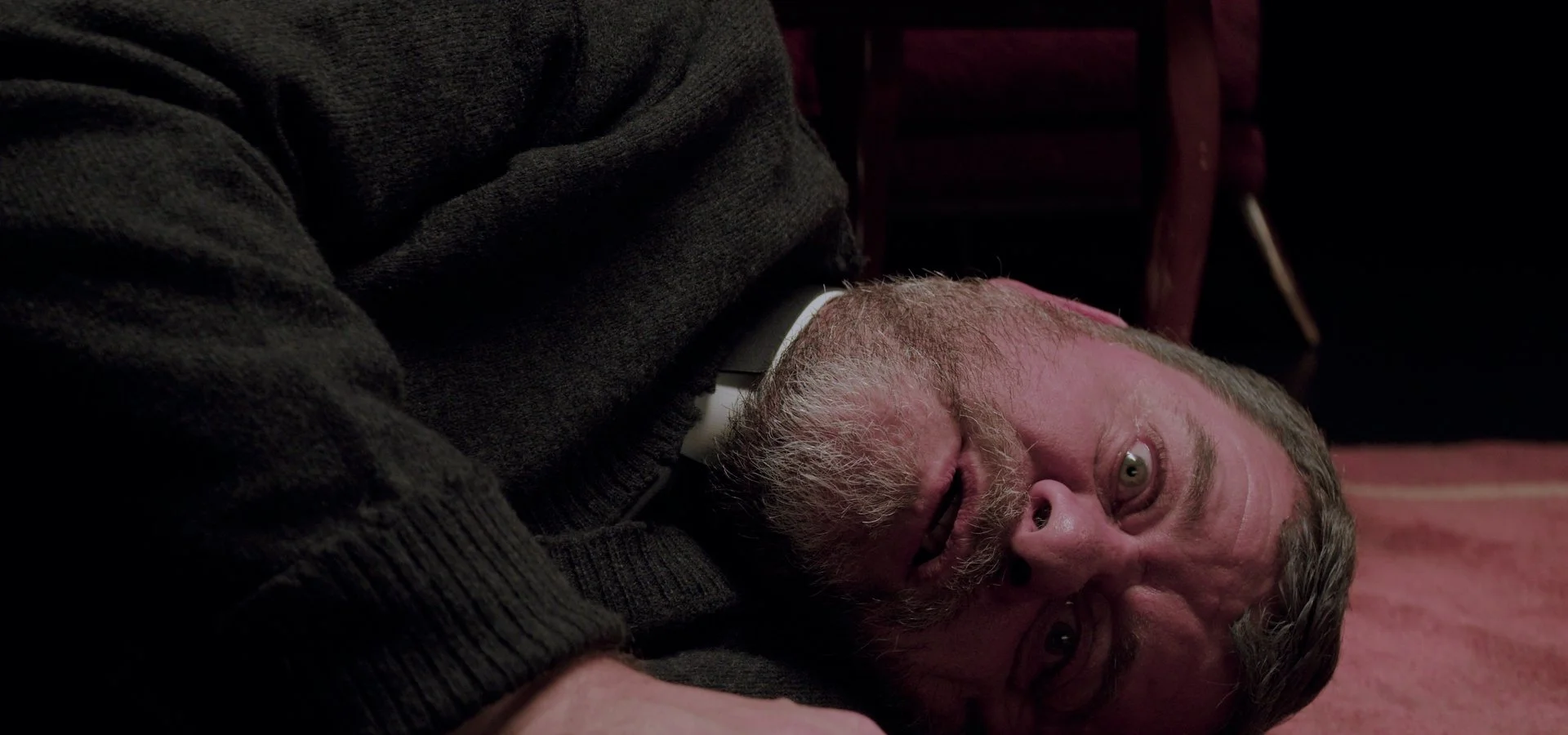Shock Horror
Education Pack
Shock Horror’s interactive e-Learning pack is now available to elevate your enjoyment of creativity and learning. Bringing the excitement of physically engaging with horror into the digital world.
We hope that teachers and students will enjoy our production of Shock Horror: A Ghost Story. This interactive opportunity can support you to either prepare and inform students about the play, or to explore horror theatre in more depth.
About this pack
The e-Learning pack is a detailed companion to the show; featuring plot synopsis, a deep-dive into each character and interviews with the show’s creative team; supported by exciting new workshop ideas and activities.
Educational
Benefits
Shock Horror is one of the first ever ghost stories to combine pre-recorded film (multimedia) with live action performance, weaving imagery into the plot as the live action unfolds on stage.
Its ideas are a gateway into innovative new ways of creative thinking; an opportunity to experiment and spark your imagination. We believe horror is at its very best when its live and everywhere around us. So let’s play with fear and have fun fighting the monster together.
-
The play was co-created byWar Horse actor & puppeteer Alex Moran, and features live illusions designed by Olivier Award-winning John Bulleid (Magic & Illusion Associate on Harry Potter and the Cursed Child, Associate on the National Theatre’s The Ocean at the End of the Lane and The Worst Witch). Supported by a haunting musical score courtesy of Emmy-nominated Ben Parsons (Composer for The BBC, HBO, Netflix, Channel 4, Sky, ITV & Discovery Channel).
-
This pack enables students to apply their knowledge and understanding of drama and media to respond to the production and use their findings to reflect on their own choices in performance.
An understanding of the roles and processes undertaken in modern professional theatre practice are highlighted for students to develop an awareness and understanding of how this has been employed in a multi-media horror theatre show.
-
We also offer an insight into careers in theatre and film, from prosthetics make-up artists to filmmakers and composers; the use of performance space in mid-scale theatre venues and the spatial relationships between the film and live action performed.
Offering students the opportunity to reflect on the interactions between performer and audience when creating tension and scares on stage.
“Shock Horror can help you learn so many new skills such as using suspense and creating tension in performance.”
-Tae, Madeley High School
About the play
Inspired by classic theatre ghost stories and cinema’s greatest frights, Shock Horror is a chilling journey into a haunted past. Combining live performance and big-screen action, it’s full of shivers, shrieks and shocking revelations. Discover more about it’s eerie setting below:
-
The setting for the story. In the 1980’s The Metropol was taken over by The Friedkin’s - Herbert’s fanatical parents. Herbert has grown up in the cinema, which throughout his childhood screened only horror. He has been denied contact with the outside world, no friends, no school, no family.
The Metropol was his playground, his window to the world, his prison. His mother, Norma, had delusions that a shapeshifting entity living in the walls of the cinema was coming for her, and kept Herbert trapped in his room for his own safety.
-
Understandably, Herbert grows up to be a horror film fanatic, obsessed with making terrifying films of his own. Now an adult, returning to the abandoned cinema he grew up in, Herbert prepares to present his best film yet - Shock Horror.
But as Herbert’s childhood memories begin to wake from the dead, something else waits for him... something much worse.
“The play is brilliant, a great way to develop roles for shocks and acting.”
— Freddie, Rugby School
Themes
The play covers a variety of themes & topical debates that you can explore in more detail, including:
mental health and neglect
isolation and broken relationships
screens (and their dangers)
obsession, religion and nature versus nurture
-
The concept for the play evolved from a desire to free young people from their addiction to social media. Herbert’s isolation reflects that of many teenagers in adolescence - isolation and anxiety feeding the darkness that hides within us all.
-
The play explores obsession and the power of belief. No character in the story sets out to be the villain, they all believe they’re the hero and morally correct. But pursuing a single ‘truth’ to the exclusion of all else has its consequences. ‘Truth’ stems from belief, and just like the dark corners of the internet, dubious facts can be used to persuade and pollute young minds.
-
These questions ultimately lead us to another theme of the play - nature versus nurture. Herbert is driven to commit terrible acts through the course of the story, but would that be different if he had never seen a horror film? Or was the neglect and abuse he received at the hands of his parents the reason why he hurts others?
“I could barely pry my eyes away from the action on the stage... the terror and the mystery Shock Horror creates is inescapable”
— Exeposé Magazine”
Characters
Drama Activities
Horror theatre is rarely performed and here’s an exciting opportunity for you to change that. Unearth the creativity of horror performance using these new inspired scenarios and concepts:
-
Friends have gathered to watch a low budget horror movie. As the film plays, the action on screen starts to bleed into the action on stage until it reaches its shocking conclusion. E.g. The ‘screen’ characters hear noises in a movie about a haunted house and the ‘stage’ characters hear the same noises upstairs, so they creep up to investigate.
Or monsters in the film burst through the screen to chase the actors on the sofa.
Or a friend on the sofa falls asleep as they watch the movie and when they wake up... they’re in it!
Ideas To Explore
How do you build tension on stage?
How can you use simple theatrical techniques such as sound effects or dramatic changes in character to build suspense?
How can you use the most common storytelling structure of ‘beginning, middle and end’ to strengthen your piece of theatre?
(Top tip: Why not give your ‘screen’ characters over exaggerated American accents? It’s a fun way to practice your vocal work and explore characterisation.)
-
Below is a button to open an extract from Act 2 of Shock Horror.
Herbert is locked in his room with a creepy ventroloquist’s dummy given to him by his Father. One actor can play Herbert and one can be the puppet. The scene is incomplete, how would you finish it?
Careers
The production features a diverse workforce across multiple art forms. A deep-dive into interviews with the creative team will provide insight into the different career opportunities within theatre and film:
-
An Interview with Ryan Simons (Writer and Director)
Ryan is a Yorkshire based playwright and film maker. He trained as a writer with Hull Truck and his television work includes Eastenders, Emmerdale and Spooks. His plays include Merlin and The Magic Mirror and Bottoms Up. His horror films Seizure and Demon Eye have been released theatrically in America and Europe, distributed in thirty territories globally. His recent short film Tea With The Reaper won four prestigious awards after initial release.
How does directing for a horror theatre show differ from directing a regular play?
Horror shows are very precise to direct. Scares have a delicate balance that require all the building blocks of action, light and sound to be aligned perfectly in order to deliver the killer burst of tension the audience crave. But most of all, horror is not about the monster jumping out on us, it’s about the slow creep up to where its hiding.
How would you describe the play?
A ghost story blended with iconic horror cinema that delivers thrills, chills and jump scares. At the heart of Shock Horror lies the touching story of a haunted child, that leaves the audience wondering whether the true horror of the play is nature or nurture.
It sounds like 70s and 80s horror films have inspired the play. Can you tell us more?
Ever since A Nightmare on Elm Street traumatised me to ‘never sleep again’, I became fascinated with 80s horror and its unique ability to terrify with a smile. The Shining, Poltergeist, Hellraiser and the many late 70s horrors that didn’t bleed into the UK home video market until the early 80s have all kept me awake in the dark and inspired me to weave those nightmares into the world of Shock Horror.
What are your top tips for young people interested in writing for theatre and film?
Just start. Accept that not everything you write will be brilliant, that’s okay, writing is rewriting, first you build, then you chip away at the bits you don’t want and then you polish to make it sound better when spoken out loud.
That last point is really important! Theatre is designed to be spoken out loud, it’s not an essay. Fancy words and a well structured sentence don’t fit every character.
Most people I know speak in... fractured... sort of... you know... broken sentences.
-
An interview with Alex Moran (Actor and founder of Thunder Road Theatre)
What are some of your favourite things about performing horror theatre?
I grew up watching The Woman In Black. 14 visits to see the show and it never gets old for me. Performing horror takes me right back to the first time I saw it. Like Herbert, I’m a kid again. I can only hope any audience member who sees this show shares the same sense of excitement that I felt back then. It was such an eye opening experience as a kid to see theatre done in a way that immerses the audience in a story so vividly.
The atmosphere in horror is totally different to any other theatre experience I’ve ever had.
How have you approached Herbert as a character?
I’m very lucky with Herbert, it was created by Ryan (writer/director) for me, based on me, which helps a great deal with my approach. I would certainly say trust and positive dialogue between you (as actor) and the director is always a great way to begin. Always try to work with them rather than against them, and you’ll create something you can perform with confidence and joy.
What is your favourite thing about Herbert?
He reminds me of me. Shock Horror! Certainly not in all aspects, but his childhood is not too dissimilar to mine and Ryan’s. I’m sure a lot of us felt alone as children, and Herbert is a clear example of how loneliness can have such a devastating effect on a young person.
It’s something I’m keen to make people aware of, to continue the conversation of how we spot the signs, and what we can do to make young people aware that they are loved, understood, and that they are not alone.
Tell us about your experience with puppetry! Do you have any tips for how young people could get started with puppeteering?
War Horse was a wonderful part of my life and completely changed my approach to performance. Not just as a puppeteer, but as an actor too. The goal as a puppeteer is to make the audience believe your puppet is alive. So the clearest tip I can offer is breath. Make your puppet breathe and you will bring it to life.
Do you have any top tips for young people interested in creating their own theatre company?
Style is important. As is creating work that you care about. When I started Thunder Road we created dark twisted tales adapted from classic novels; although we have evolved into new projects our audiences can identify with our style and look forward to our next project, and our next. This helped us grow as a company. Once you have a reputation for producing high quality work, you can change direction and take your audience with you.
-
An interview with Ben Parsons, Composer.
Tell us about your experience of working on the music, where did you begin?
I began by reading the script and discussing it at length with both Alex and Ryan. I really wanted to understand the play and their vision driving it before picking up an instrument. For example, we talked about roughly when the play is set, the films that the script references, the age of the characters, the building in which it is set and it’s state of dilapidation all as possible influences on the music. We discussed the interplay between the projected films and the drama in technical and also artistic and structural terms.
Above all this though, we talked about the character of Herbert and his state of mind, his loneliness and detachment and how the music might reflect, emphasise or even contrast with this. There is a terrible sadness to the characters who are all damaged in one way or another and also damaging to each other and I wanted this sense of damage to come across in the score. I have used in the score to name a few: Dulcimers, wrongly tuned bending strings, broken music boxes, classic film score orchestral sounds, noisy clacking accordions.
How did you become a composer? Have you had any other jobs along the way?
I have honestly always had an urge to create music as soon as I started playing the piano as a boy, I’d sit for hours crashing away playing nonsense rather than practising properly. I had always played in bands, orchestras, theatre music groups and had always really enjoyed any of them where we would write new music.
I spent far too much time at university writing techno on an old Atari ST with my friends and completely fell in love with the art of creating music from scratch. I used to tour with a few bands playing keys which I loved but I am glad to be back writing full time now. I started out by sending some music I’d recorded and burned to CD to an edit suite in Manchester and got a job writing for a kid’s TV show and have not stopped writing since.
What advice would you give to someone interested in becoming a composer for theatre or film?
Write, write and then write some more, specialise if that make sense for you and keep sending music to anyone who is buying it! Don’t be overwhelmed by the amount of other composers and sheer volume of music out there now, there is an enormous global appetite for new music and so much art, media and content that needs music!
-
An interview with Nikoleta Tzani, Prosthetics and Makeup Artist
How did you become a prosthetics and makeup artist?
Somehow I got from studying and training to be an actress in Greece to moving countries and wanted to do make up and prosthetics in the film industry! I have done a lot of teaching in prosthetics, I worked as a special makeup effects technician in Colleges. I have worked on Netflix series such as The Witcher Blood Origin, Half Bad and Bodies.
What does your day to day life look like?
If I’m making the prosthetics for a production, I usually start with life-casting for something bespoke to the actors. I then make a replica for their body that I need to alter with prosthetics, then I start sculpting with clay for 1 -3 days or more, depending on the project. Once the production approves the design, we mould it and cast it in silicone. And that is all done before we even start testing the make up with the long hours application on the actors. You need to have patience, time, be happy to be covered in silicone and resin, work long hours, and have the ability to change something that has gone wrong!
Tell us about your research process for the play?
I usually look at real victims of the effect I want to produce. So I looked at burned victims and wounds and decide which colours we need to use with the lighting and the set in order to emphasise the make up. This depends on what kind of burn it is and it depends on the way it happened. An electric burn is different than a fire or explosion burn.
Do you have any advice for young people interested in doing what you do?
Don’t let anyone tell you can’t do it! Even when you think nothing good is coming up, you have to believe it will and act like the opportunity will come for you and it will! Make sure you get in to the right makeup course! Start small and do it well and be prepared to fail. But failing means you will learn and become better for next time! Become a trainee for a workshop or a designer and be helpful to them and slowly you will get there. Practicing the skill is key, whichever skill that is from make up application, to moulding or sculpting!
“After completing the horror activities, every student wants to look at horror for their devised pieces. Really amazing.”
— Head of Academic Drama at Rugby School
Shock Horror will be delivering wrap-around creative activities to schools and colleges once again on its new 2025 UK Tour.
Want to book a drama workshop for your school, college or university?
Contact Jess Rooney:
marketing@thunderroadtheatre.org







